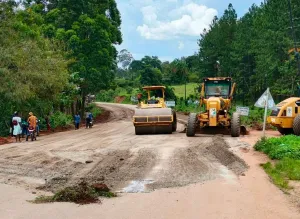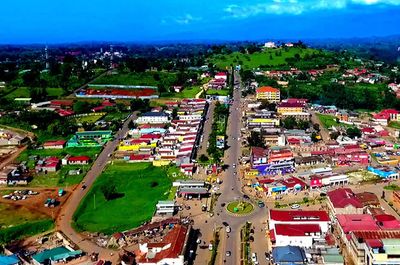

Free-range Chicken have helped increase youth become more climate resilient. Internet Photo
This year’s World Food Day theme is “Right to Foods for Better Life and a Better Future.” On such days, the conversations usually revolve around how to feed everyone sustainably while protecting the environment. Recent studies have shown that one of our most popular animal protein sources—chicken could be quietly contributing to climate change.

Author, Dr. Barbara Zawedde is the director of research at NARO Muzardi in Mukono
Chicken has become a leading source of animal protein and is seen as a healthier and more environmentally friendly alternative to red meat. In 2020, poultry meat represented almost 40% of global meat production. While it’s true that the chicken value chain has a lower carbon footprint than that of cattle, we often overlook the hidden environmental costs of chicken production.
Poultry production and waste have been linked to emission of greenhouse gases (GHGs) such as ammonia, nitrous oxide and Carbon dioxide. In Uganda, for example, intensive broiler production is on the rise thanks to increasing demand, and improved efficiency in feeding and management.
However, according to the FAO’s Livestock and Environment Spotlight report for Uganda, chicken in intensive systems emits 0.05 tonnes of CO₂ equivalent per year. Most of these emissions originate from the feed supply chain, particularly maize and soybean, often imported into East African countries. Furthermore, smallholder farmers often dispose off chicken waste in open pits or inefficiently use it as manure, contributing to both air and water pollution.
While chicken is often seen as a feasible entrepreneurial option, its environmental impact can no longer be ignored. If current production practices continue, the environmental costs of the chicken value chain may outweigh its benefits as an affordable protein source. However, abandoning chicken enterprises is not the solution. It remains an increasing source of animal protein for many people globally. There is hope and efforts to transform the chicken value chain to make it more sustainable and climate resilient.
One promising initiative is the Greening the Chicken Value Chain project, led by the National Agricultural Research Organisation (NARO) in collaboration with the University of Burundi and Gudie Leisure Farm. This project aims to identify and implement climate-resilient innovations within the chicken value chain in Uganda and Burundi.
Among other strategies, the project will use simulation modelling to optimize climate-resilient practices across the entire value chain, from feed production to management, processing, and consumption. The project will also use digital tools including Artificial Intelligence to exponentially increase the promotion and effective use of the prioritised solutions.
These solutions may not be silver bullets, but by bringing all relevant stakeholders to co-learn and prioritize the most appropriate climate-resilient solutions for the chicken enterprises, we can continue to enjoy chicken as a delicious part of our diets—without it quietly fuelling climate change.
The author is the director of research at NARO – Mukono ZARDI














Dr. Barbara Zawedde
Leave a Comment
Your email address will not be published.